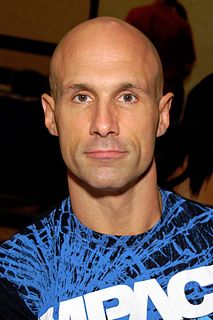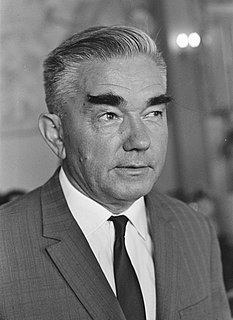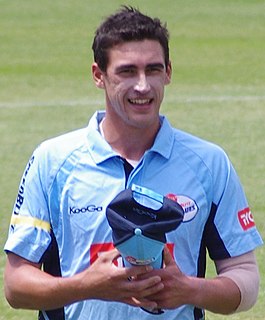A Quote by Christopher Daniels
The thing about the Young Bucks is that they've sort of turned their own success into this movement. They don't really follow a format or play by a set of rules, they just go out there and feel everything, so it's hard to gauge a game plan for them.
Related Quotes
Also for me, I don't make endless movies back to back all the time, I really sort of come to understand and love the characters that I play. And with April and Hanna you sort of go through a weird period of feeling sad about letting them go. Sometimes that takes me a week and sometimes it takes me a couple of months, just so that I can feel I can realign my own thoughts again. I do feel really, really blessed that I've had these opportunities.
I feel like, these days there's so much music and so many bands, that it's exciting to hear when people go through the whole process with their own sort of system of making the music. It gives it a much more personal individual feel, like unique feel, when somebody has a really idiosyncratic set-up, or they just have what might be considered strange ways of going about the process that yields results that are not just cookie-cutter sounds like everything else... and I think that can only be a positive thing.
If you want to coach you have three rules to follow to win. One, surround yourself with people who can't live without football. I've had a lot of them. Two, be able to recognize winners. They come in all forms. And, three, have a plan for everything. A plan for practice, a plan for the game. A plan for being ahead, and a plan for being behind 20-0 at half, with your quarterback hurt and the phones dead, with it raining cats and dogs and no rain gear because the equipment man left it at home.
I think a good quarterback or a good linebacker, a good safety, even though you have a lot of bodies moving out there, it slows down for them and they can really see it. Then there are other guys that it's a lot of guys moving and they don't see anything. It's like being at a busy intersection, just cars going everywhere. The guys that can really sort it out, they see the game at a slower pace and can really sort out and decipher all that movement, which is hard. But experience certainly helps that, yes.
Important thing about myth is that it's not just something that you believe, a myth is essentially a program for action. And unless you translate a mythical story, or a doctrine out of the church, into practical action, it just remains incomprehensible. Rather like the rules of a board game which seem very sort of dull and complicated and incomprehensible until you pick up the dice and start to play, when everything falls into place.
I'm always thinking about young people first when I'm writing music. Whenever I can reach that young person and inspire them to go after their own dreams, start their own movement just like I did with Wondaland. Starting their own tribe and showing people that we are not all the same, we're not all monolithic. I think that's what it's all about for me.
I thought if I followed the rules, things would turn out all right. that's the thing about the cure, isn't it? It isn't just about deliria at all. It's about order. A path for everyone. You just have to follow it and everything will be okay. That's what the DFA is about. That's what I belevied in-what I've had to believe in. Because otherwise, it's just...chaos.
It felt really radically uncomfortable. And I was really not sure at first about releasing that body of work. But then the more I thought about it, the more I thought that that position, that location, is something that's just sort of interesting in its own right, as an experience, as a process. Again, we're talking about this rubric, this set of rules, this grid that I toss on top of different locations globally. This is what came out of Africa.

































